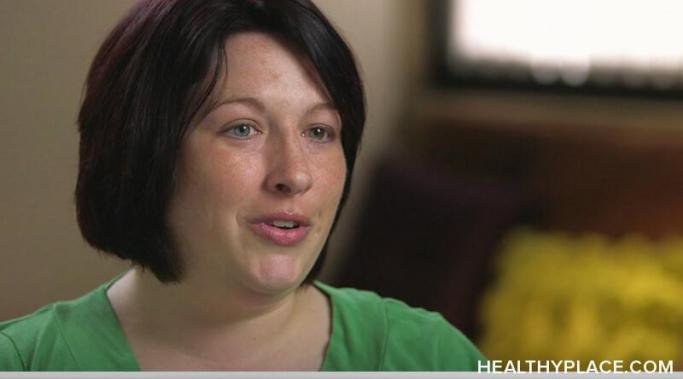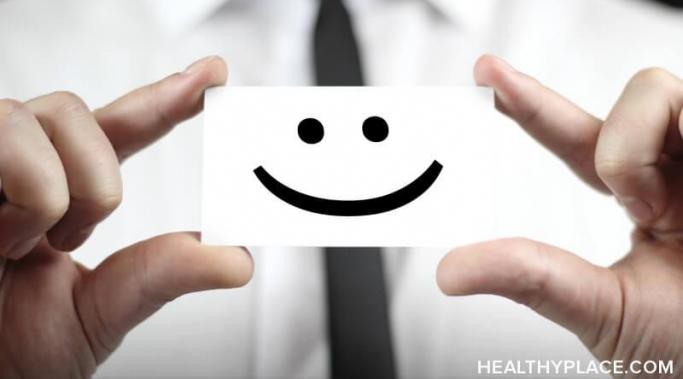Blogs
As someone with posttraumatic stress disorder (PTSD), I've learned dealing with uncertainty is akin to sitting in the middle of a field during a thunderstorm, praying lightning won't strike you. Uncertainty and PTSD are not my friends. They have not been kind or reassuring. They have not taken my hand and led me toward the sunlight. They have only ever presented as a long, dark tunnel with no end.
I consider conditional love to be part of verbal abuse. Not all verbally abusive behaviors are apparent. Instead of demeaning insults or threats, sometimes it involves less obvious actions, like withholding affection. This type of conduct can still be harmful to anyone who is the target of conditional love and verbal abuse from a person they care about.
My physical therapist, Marge, really surprised me by starting a conversation about mental health stigma on my last visit with her. I need to be in physical therapy because I’m recovering from double knee replacement surgery. Our conversations have revealed that she’s very anti-mental health stigma. Some people aren’t, so I just don’t discuss it with them. Physical therapy suddenly took on a whole new dimension.
I have experienced anxiety and loss. It's been about five years since the loss of my father, and this year, I've been reminded that grief takes its own route and doesn't operate on a schedule -- particularly with regard to anxiety and loss.
Time flies when you are neurodivergent. I know this because I am not neurotypical, given that I have been diagnosed with double depression and generalized anxiety disorder. I am aware that many people do not consider depression and anxiety as neurodiverse conditions. But I do, and my lived experience matters. Plus, my psychiatrist himself told me that having depression and anxiety for years has changed the structure of my brain such that it is different from that of a person without depression and anxiety. So, let's talk about time and neurodivergence.
Recovering from a mental illness is already hard, but being prescribed the wrong mental health medication makes the experience even harder. In the past, I have been prescribed the wrong mental health medications, and I’ve heard many stories of others who have had to deal with the same situation. Being medicated incorrectly can be harmful, so speaking up when there’s something wrong is critical.
In my self-esteem journey, I've turned to exercise as a constant companion. Whether it's yoga, sports, weight lifting, or biking, the benefits of physical activity have been my steadfast allies. What I have come to realize, however, is that the positive impact of exercise goes far beyond the physical realm; it extends deep into the subjective domain, influencing the way I perceive myself. Ultimately, I've found that exercise boosts my self-esteem.
I often hide depression with a smile, even when I'm actually extremely depressed. This is a characteristic of "high-functioning" bipolar or depression. In other words, I'm carrying on with life and maybe even look okay, but really, I am drying inside. I've had practice looking mentally well when being really sick for years. I'm awfully good at it. But while this allows me to move through the world more successfully than some, there are also problems when you hide depression despite being very ill.
The creation of art can help with depression. During the cold season, when I'm stuck indoors, it becomes tempting to spend a lot of time sleeping. This only makes me feel depressed. To combat this, I try to find fun activities that challenge my mind. This year, I discovered joy in diamond painting. To learn how this artistic hobby helps with depression, read on.
I have a bipolar routine that I adhere to pretty rigidly. This is important for my mental wellness. However, I know that one reason some people don't want a bipolar routine is because they fear the rigidity that can come with it. I can understand that, so let's take a look at bipolar routines and their rigidity.










It is wonderful to hear that you are embracing YOUR progression. Although it is natural to compare ourselves to others around us, it is unhealthy. However, it does take self-awareness, continuous practice, and willingness to change our thinking. The fact is that we are all 100% unique, and there is no one else like us. Thus, we can only follow our own journey and walk along at our own speed when it comes to recovery. How we recover is normal -- at least for us.
Think of it like this: trauma is our normal reaction to an abnormal event, plain and simple. It doesn't matter if someone else doesn't think our trauma is valid -- it is precisely that, OURS. In return, our journey of recovery should also be OUR normal progression from the trauma or mental health condition.
I am happy to hear that you can change your thinking and are trying to not compare yourself to others. Keep strong and go forward at your own pace.
Unfortunately, the blogger who originally posted the poem is no longer at HealthyPlace. I did an internet search for the poem and could not find the poem titled "I'm Here for You." I would have to conclude that it is an original from the blogger or someone she knows. It is a beautiful post!
As for lawyers, Google the Bar Association of your home state. There should be a list of resources and listings for the type of lawyer you need. I hope this helps!
Thank you for your comments. I'm so glad this article was helpful for you. Practicing mindfulness has been truly helpful for me in coping with anxiety. I recommend awareness of what your senses are taking in. It takes a bit of practice, but it is very beneficial!
All the best,
Rizza